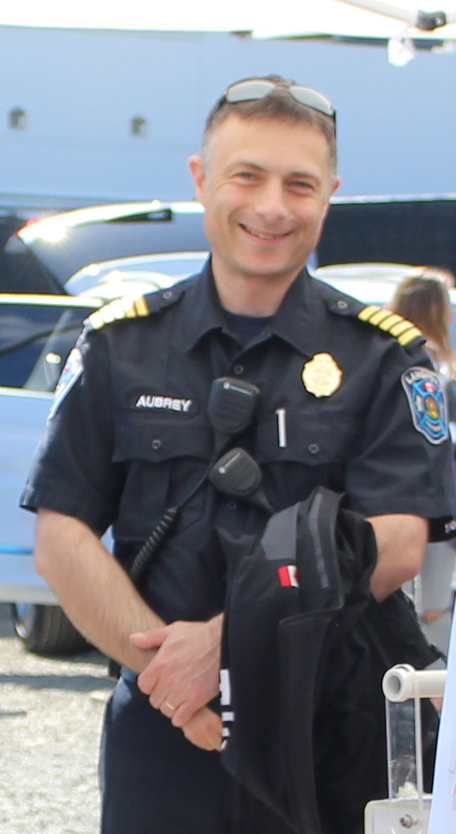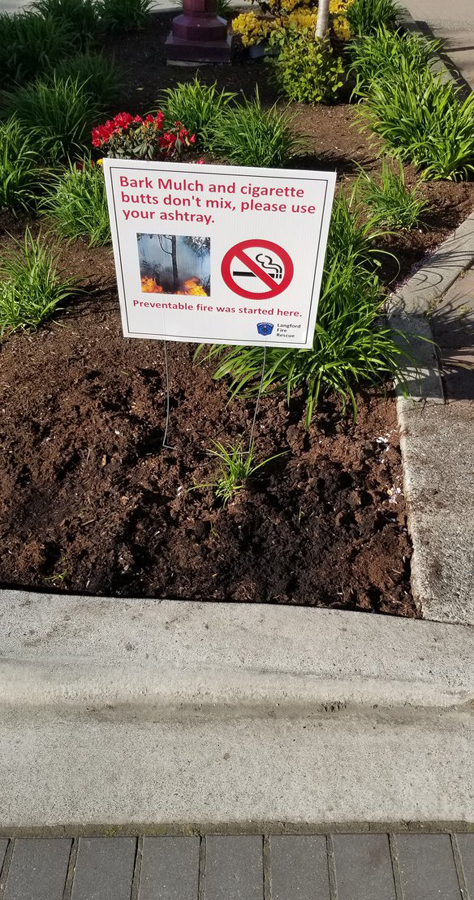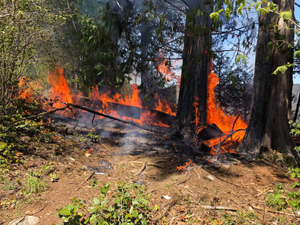Friday, May 10, 2019 ~ LANGFORD
by Mary P Brooke ~ West Shore Voice News
Already there have been five cigarette-related fires in Langford in just over a week (May 1 to 9), and it’s only just the middle of spring. Weather has been warm and there’s been no rain for over a week, so ground areas are dry.
Apparently no fines have been issued.
The five fires were attended by Langford Fire Rescue. It takes up resources like the use of trucks, the time and availability of firefighters, equipment to be reassembled and protective gear washed afterward, and of course water.
“It is unfortunate that we have to remind everyone that cigarettes need to be properly disposed of each year as it gets warmer,” says Langford Fire Rescue Chief Chris Aubrey.

“I believe people get into a habit over the winter — when it’s wet — of tossing them into flower beds or outside their car window. But those behaviors cause problems when it gets dry throughout spring and summer,” said Chief Aubrey on this warm Friday.
The temperature in Langford reached to around 25°C this afternoon.
The locations of all these early-season fires have all been around parking lots of businesses or apartments, says Aubrey.
“One fire this week started as a fire in a flower bed but escaped into the surrounding brush and took longer to extinguish,” he explained.

“In most cases we send our Brush truck with two firefighters and it takes about 30 minutes for them to attend, put the fire out and return to service. Had we been in High or Extreme conditions that fire would have likely required one or two engine crews to put out and would have spread much faster,” said Chief Aubrey.



